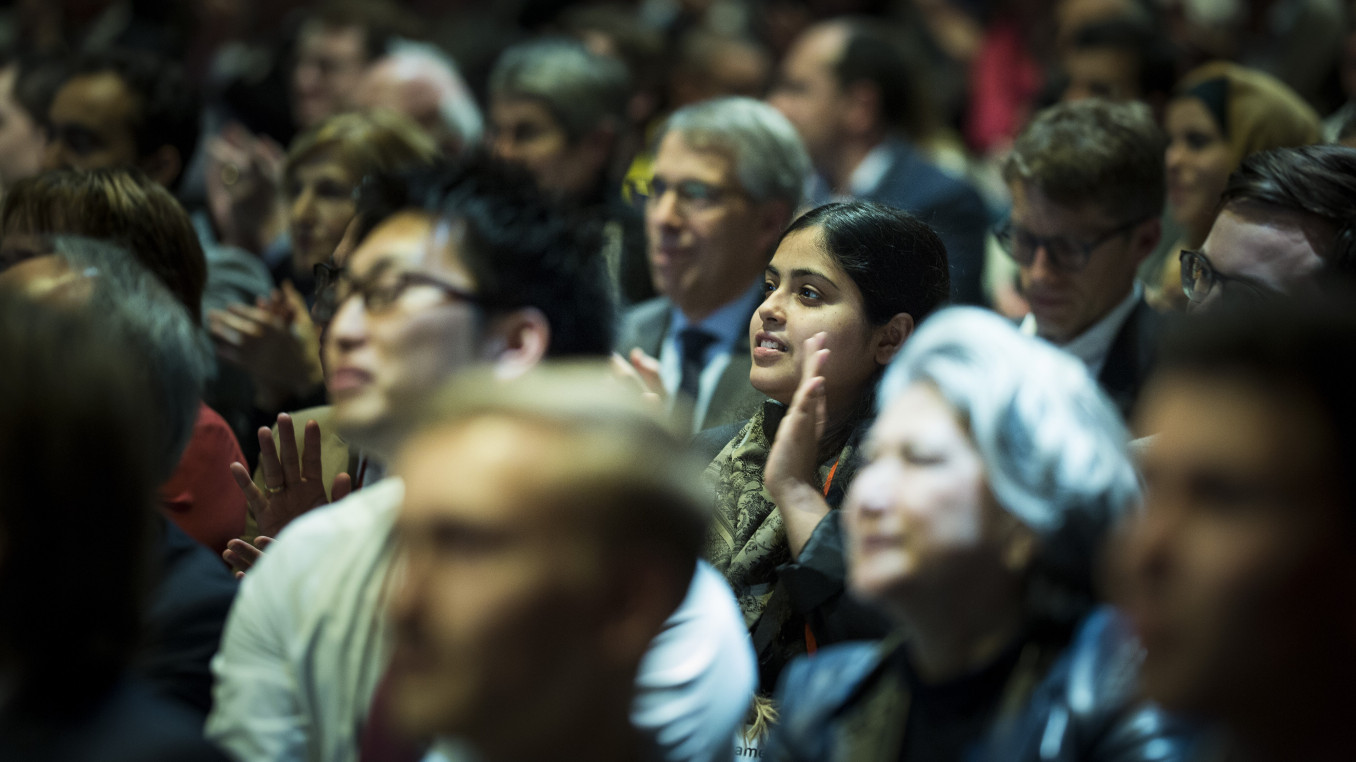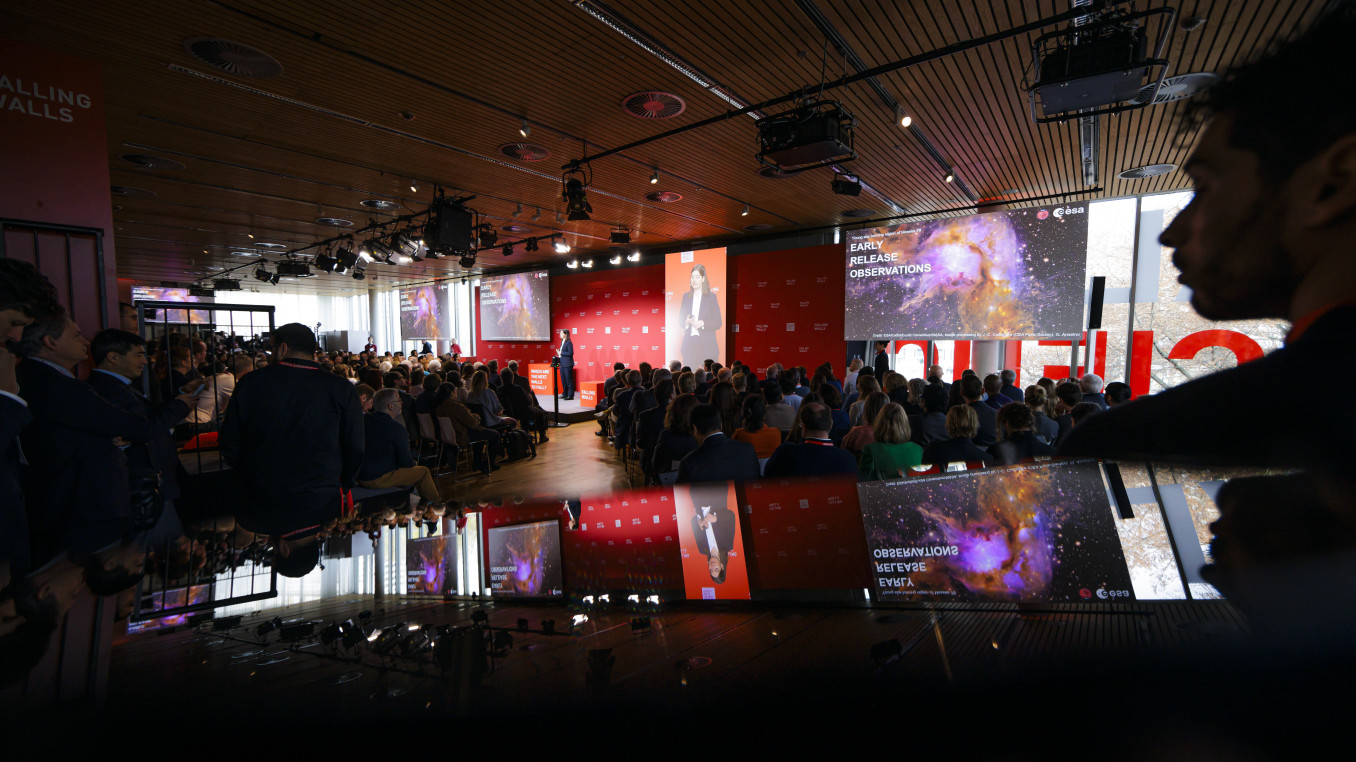Uniting Minds for Climate Action: Kimberly Doell's Global Research Initiative
Breaking the Wall of Climate Psychology
Winner Interview 2024: Social Sciences and Humanities
Kimberly Doell leads an international team of behavioral scientists and climate psychology experts, developing and testing 11 psychological interventions to boost climate awareness, policy support, and pro-environmental action. Through a large-scale experiment involving over 59,000 participants from 63 countries, Doell’s team identified the need for tailored interventions, noting significant variations in effectiveness across different contexts. They created an open-access WebApp to help users find effective strategies for their local areas. Doell’s work emphasizes the importance of understanding diverse psychological responses to combat climate change effectively.
Which wall does your research or project break?
We aimed to break multiple walls and overcome several barriers related to climate change psychology. Most research in this domain focuses on evaluating how one or two interventions, designed by a small team of researchers, promote one climate change-related outcome in a very specific type of participant (for example, people from the United States). This greatly limits the generalizability of findings beyond that outcome and those people.
Our project overcame these barriers by harnessing the expertise of 258 collaborators from diverse backgrounds. Together, we ran one of the largest experiments in the field of climate change psychology, involving over 59,000 participants across 63 countries. We tested 11 psychology-based interventions to boost climate awareness and action, resulting in important insights into which strategies are most effective globally.
What are the three main goals of your research or project?
We had many goals in this project! The first main one was to harness the experience and expertise of the researchers in our team to develop and test state-of-the-art interventions designed to stimulate climate change mitigation (attitudes and behaviours). We ran an intervention tournament where collaborators could submit any intervention they wanted to see tested in this context. We narrowed down the submissions to the ones that would be feasible to run in this international context, and ended up with the 11 included in this project.
The second main goal was to test how effective these interventions were in as many participants and countries as possible. We really wanted to make our results as generalizable as possible, and so we spent months recruiting collaborators and convincing them to work with us. It is thanks to the efforts of those collaborators that we managed to collect data from every inhabited continent on the planet!
The third main goal was to develop the Climate Intervention Webapp (https://climate-interventions.shinyapps.io/climate-interventions/), a simple easy-to-use app that can be freely used by anyone interested in looking into our data. Participants can be broken up according to nationality, political orientation, gender, age, and many other variables. It is an easy way to see which interventions are most effective across all these variables and across the different outcome variables included in our project.
What advice would you give to young scientists or students interested in pursuing a career in research, or to your younger self starting in science?
The most valuable advice I can offer is to seek out a great mentor—or even two. The academic journey can often feel daunting, overwhelming, and isolating. A good mentor provides guidance on the best steps to take and helps you navigate through the complexities and uncertainties of academia. Their support and wisdom can make a significant difference in your scientific career, offering clarity and direction when you need it most.
What inspired you to be in the profession you are today?
A large part of it was luck. I was in the right place at the right time and with the right people and voila, I managed to find a line of research that was uniquely well suited to me!
What impact does your research or project have on society?
I hope that our research helps us to better understand how to promote sustainability!
What is one surprising fact about your research or project that people might not know?
The project we originally set out to run was designed to be much smaller. We hoped to test one or two interventions in 5 or 10 countries. Thanks to our collaborators' amazing effort, we were able to test 11 interventions in 63 countries!
What’s the most exciting moment you've experienced over the course of your research or project?
I loved many things about this project, but my favourite has to be the tree-planting results! In one of our outcome variables, participants could voluntarily invest effort and time in screening numerical stimuli. We explained to participants that, for every page of this cognitively demanding, time-consuming task that they completed, we would pair with the Eden Reforestation Projects to plant one tree in the real world on their behalf. Participants could complete up to eight pages of this task, and over half of the participants in this project completed all eight pages! That means that most people are willing to do as much as possible to fight climate change in the real world, even if it is highly effortful and time-consuming!
Thanks to their efforts, alongside The Eden Reforestation Projects, we planted over 300,000 trees! Thus, not only did this project advance the theoretical understanding in the climate psychology domain, but we also managed to help tackle climate change (at least slightly)!
First paper that compares the effectiveness of the interventions: Addressing climate change with behavioral science: A global intervention tournament in 63 countries


